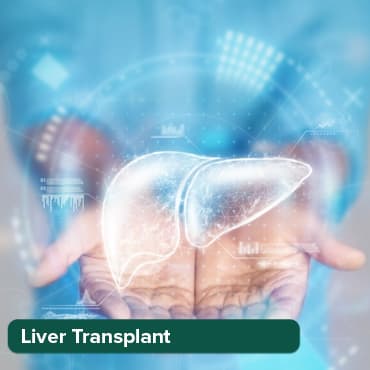
The Pros and Cons of Gastric Bypass Surgery
06 May, 2023
Gastric bypass surgery is a medical procedure that is used to treat obesity by reducing the size of the stomach and bypassing a portion of the small intestine. The surgery is designed to limit the amount of food that can be eaten at one time and reduce the absorption of calories from food. While gastric bypass surgery has been shown to be effective in promoting weight loss, it is important to understand the potential risks and benefits of the procedure before making a decision to undergo it. In this article, we will discuss the pros and cons of gastric bypass surgery in detail.
Pros of Gastric Bypass Surgery:
Transform Your Beauty, Boost Your Confidence
Find the right cosmetic procedure for your needs.

We specialize in a wide range of cosmetic procedures

1. Significant Weight Loss: One of the primary benefits of gastric bypass surgery is that it can lead to significant weight loss. Studies have shown that patients typically lose between 60% to 80% of their excess body weight within the first year after surgery. This can have a significant impact on overall health and quality of life, as obesity is associated with a number of health problems such as diabetes, heart disease, and joint pain.
2. Improved Health Outcomes: Gastric bypass surgery has been shown to improve a number of health outcomes in obese patients. For example, patients who undergo gastric bypass surgery have been shown to have lower blood pressure, improved cholesterol levels, and better blood sugar control. Additionally, the surgery has been shown to reduce the risk of developing type 2 diabetes, sleep apnea, and certain types of cancer.
3. Improved Quality of Life: Patients who undergo gastric bypass surgery often report improvements in their overall quality of life. This can include improvements in physical functioning, social functioning, and emotional well-being. For example, many patients report being able to engage in physical activities that they were previously unable to do, such as running or hiking. Additionally, many patients report feeling more confident and self-assured after the surgery.
4. Long-Term Sustainability: Unlike other weight loss methods, such as diet and exercise, gastric bypass surgery has been shown to be a sustainable long-term solution for obesity. Studies have shown that patients who undergo gastric bypass surgery are able to maintain their weight loss for at least 10 years after surgery.
Cons of Gastric Bypass Surgery:
1. Risks and Complications: Like any surgical procedure, gastric bypass surgery carries risks and potential complications. Some of the common complications associated with the surgery include bleeding, infection, and blood clots. Additionally, there is a risk of developing a hernia or bowel obstruction after the surgery. Patients may also experience complications related to the anesthesia used during the surgery.
Most popular procedures in India
Atrial septal defect
Upto 80% off
90% Rated
Satisfactory

Coronary Angiogram a
Upto 80% off
90% Rated
Satisfactory

Coronary Angiogram C
Upto 80% off
90% Rated
Satisfactory

Liver Transplant
Upto 80% off
90% Rated
Satisfactory

Total Hip Replacemen
Upto 80% off
90% Rated
Satisfactory

2. Lifestyle Changes: Patients who undergo gastric bypass surgery must be willing to make significant lifestyle changes in order to maintain their weight loss. This includes adhering to a strict diet and exercise regimen, as well as taking nutritional supplements to compensate for the reduced absorption of nutrients. Patients may also need to make changes to their social life and relationships in order to avoid situations that could trigger overeating.
3. Nutritional Deficiencies: Because gastric bypass surgery involves bypassing a portion of the small intestine, patients may experience nutritional deficiencies as a result of reduced absorption of nutrients. This can lead to a variety of health problems, including anemia, osteoporosis, and neuropathy. Patients must take nutritional supplements for the rest of their lives to avoid these complications.
4. Emotional Side Effects: Gastric bypass surgery can also have emotional side effects, including depression and anxiety. Some patients may struggle with feelings of guilt or shame related to their obesity, and may find it difficult to adjust to their new body image after the surgery. Additionally, some patients may experience a loss of pleasure in eating, which can contribute to feelings of depression or anxiety.
Risks and benefits of the procedure. While the surgery can lead to significant weight loss and improvements in overall health and quality of life, there are also potential risks and complications, as well as the need for significant lifestyle changes and the risk of nutritional deficiencies.
Before deciding to undergo gastric bypass surgery, patients should discuss their options with a qualified healthcare provider and carefully weigh the risks and benefits. It is important for patients to have realistic expectations about the outcomes of the surgery and to be willing to make the necessary lifestyle changes to maintain their weight loss.
In addition, patients should carefully consider the emotional and psychological effects of the surgery, as well as the potential impact on their social life and relationships. Support from family and friends, as well as access to counseling or support groups, can be helpful in managing the emotional side effects of the surgery.
Overall, gastric bypass surgery can be a life-changing procedure for patients struggling with obesity, but it is important to carefully consider the potential risks and benefits before making a decision to undergo the surgery. With proper medical guidance and support, patients can successfully navigate the challenges of the surgery and achieve lasting weight loss and improved health outcomes.
In addition, it is important for patients to understand that gastric bypass surgery is not a quick fix for obesity. It is a serious surgical procedure that requires significant commitment to lifestyle changes and ongoing medical care.
Patients should also be aware that there are other weight loss options available, including diet and exercise, medication, and other surgical procedures. Patients should discuss these options with their healthcare provider to determine the best treatment plan for their individual needs.
It is also important to note that gastric bypass surgery is not appropriate for everyone. Patients must meet certain criteria, such as having a BMI of 40 or higher, or a BMI of 35 or higher with obesity-related health problems such as diabetes or sleep apnea. Patients must also undergo a thorough medical evaluation to ensure that they are healthy enough to undergo surgery.
How can we help with the treatment?
If you're on the lookout for treatment in India, Thailand, Singapore, Malaysia, UAE, and Turkey, let Healthtrip be your compass. We will serve as your guide throughout your medical treatment. We'll be by your side, in person, even before your medical journey commences. The following will be provided to you:
- Connect with renowned doctors from a network spanning 35+ countries and access the world's largest health travel platform.
- Collaboration with 335+ top hospitals , including Fortis and Medanta.
- Comprehensive treatments from Neuro to Cardiac to Transplants, Aesthetics, and Wellness.
- Post-treatment care and assistance.
- Teleconsultations at $1/minute with leading surgeons.
- Trusted by 44,000+ patients for appointments, travel, visa, and forex assistance.
- Access top treatments and packages, such as Angiograms and many more.
- Gain insights from genuine patient experiences and testimonials.
- Stay updated with our medical blog.
- 24/7 unwavering support, from hospital formalities to travel arrangements or emergencies.
- Pre-scheduled specialist appointments.
- Prompt emergency assistance, ensuring safety.
Our success stories
In conclusion, gastric bypass surgery can be an effective treatment option for obesity, but it is important for patients to carefully consider the potential risks and benefits before making a decision to undergo the surgery. Patients should discuss their options with a qualified healthcare provider, have realistic expectations about the outcomes of the surgery, and be willing to make significant lifestyle changes to maintain their weight loss. With proper medical guidance and support, patients can successfully navigate the challenges of the surgery and achieve lasting weight loss and improved health outcomes.
Wellness Treatment
Give yourself the time to relax
Lowest Prices Guaranteed!

Lowest Prices Guaranteed!




